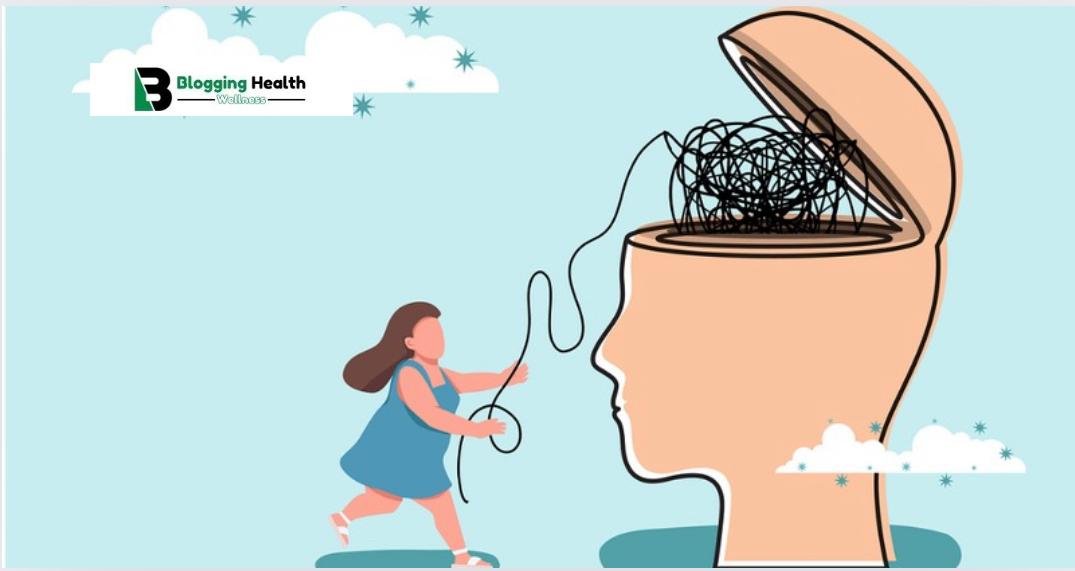Introduction Of benefits of exercise on mental health
The relationship between exercise and physical health has long been established, but the impact of exercise on mental health is equally profound. In today’s fast-paced, stress-filled world, maintaining mental well-being has become increasingly important, and exercise is a powerful tool that can significantly improve mental health. This article explores the benefits of exercise on mental health, backed by scientific research, and offers practical tips for incorporating physical activity into your daily routine.
Understanding the Mind-Body Connection
The Holistic Approach to Health
Health is a holistic concept, encompassing both physical and mental well-being. The mind and body are interconnected in ways that profoundly influence each other. When you engage in physical activity, your body releases endorphins, often referred to as “feel-good” hormones, which improve mood and reduce stress. This biological process highlights the direct link between physical activity and mental health.

Neurochemical Benefits
Exercise increases the result of neurotransmitters like serotonin, dopamine, and norepinephrine. These particles manage emotion, tension, and stress. Regular exercise raises the amounts of these neurotransmitters, that enhances emotion and overall happiness. This is reason exercise is commonly arbitrary as constituent the situation for depression and worry.
Exercise as a Natural Antidepressant
Reducing Symptoms of Depression
Depression is a average mental health disorder moving heaps of things worldwide. While cure and medicine are established, exercise has emerged as a organic and productive antidepressant. According to studies, regular recreational activity can efficiently lower depressive manifestations. Exercise reduces swelling, advances brain progress, and produces endorphins, that are open pain relievers and mood enhancers.

Improving Self-Esteem and Confidence
Depression often comes with feelings of low self-esteem and lack of confidence. Exercise can help combat these feelings by improving body image and physical strength. Achieving fitness goals, whether it’s running a certain distance, lifting a heavier weight, or mastering a yoga pose, can boost self-esteem and create a sense of accomplishment, which in turn improves overall mental health.
Alleviating Anxiety Through Movement
Exercise and Anxiety Management
Anxiety disorders are among the most common mental health issues, characterized by excessive worry, nervousness, and fear. Exercise is a powerful tool in managing anxiety. Physical activity reduces muscle tension, lowers stress hormones such as cortisol, and increases heart rate, which can change brain chemistry to reduce anxiety.
Mindful Movement Practices
Exercise also promotes mindfulness, which is the practice of staying present and focused on the current moment. Activities such as yoga, tai chi, and even walking can be meditative, helping individuals manage their thoughts and reduce anxiety. These activities encourage deep, rhythmic breathing and focused movement, which help calm the mind and reduce anxiety symptoms.

Enhancing Cognitive Function and Memory
Exercise and Brain Health
Exercise has a significant impact on cognitive function and memory. Physical activity increases blood flow to the brain, promoting the growth of new neurons and enhancing brain plasticity. This leads to improved memory, sharper focus, and better decision-making abilities. Exercise has also been shown to slow down age-related cognitive decline and reduce the risk of developing neurodegenerative diseases such as Alzheimer’s.
Stress Reduction and Cognitive Clarity
Stress can cloud judgment, impair memory, and hinder cognitive performance. Regular exercise reduces stress, clears the mind, and improves the ability to think clearly and make decisions. This is particularly important in today’s world, where mental agility and sharpness are highly valued.
Sleep Improvement and Mental Health
The Role of Exercise in Sleep Quality
Sleep is essential for mental health, and exercise plays a crucial role in improving sleep quality. Physical activity increases the duration of deep sleep, the most restorative phase of sleep, which is vital for cognitive function and emotional well-being. Regular exercise also helps regulate the sleep-wake cycle, leading to more consistent and restful sleep.
Combating Insomnia with Physical Activity
Insomnia, a common sleep disorder, is often linked to mental health issues such as anxiety and depression. Exercise can help alleviate insomnia by reducing stress and anxiety levels, promoting relaxation, and tiring the body physically, making it easier to fall asleep. However, it’s important to time exercise appropriately; vigorous activity right before bedtime may have the opposite effect.
Social Benefits of Exercise and Mental Health
Building Social Connections
Many forms of exercise, such as team sports, group fitness classes, or even walking with a friend, offer social interaction opportunities. Social connections are vital for mental health, providing emotional support, reducing feelings of loneliness, and fostering a sense of belonging. Participating in group exercise activities can help build a support network that encourages healthy behaviors and provides a sense of community.
Combatting Loneliness and Isolation
Loneliness and social seclusion are significant risk determinants for insane strength problems. Exercise supplies a everyday habit to connect with remainder of something, either through touching a local sports team, accompanying a appropriateness class, or playing in rustic activities like marching or moving groups. These friendly interactions can help combat isolation, boost desire, and help overall mental energy.
Practical Tips for Incorporating Exercise into Your Routine
Finding the Right Activity
The best exercise is one that you enjoy and can stick with long-term. Whether it’s running, swimming, dancing, or yoga, find an activity that you look forward to. This increases the likelihood of making exercise a regular part of your life.
Setting Realistic Goals
Start with achievable goals that fit your lifestyle. Whether it’s a daily 30-minute walk, a weekly fitness class, or a weekend hike, setting realistic goals will help you stay motivated and avoid burnout.
Incorporating Movement into Daily Life
You don’t need to spend hours at the gym to reap the mental health benefits of exercise. Simple changes, like taking the stairs instead of the elevator, walking or cycling to work, or doing short workout sessions at home, can make a big difference.
Consistency Over Intensity
While high-intensity workouts have their place, constancy is more influential for insane health benefits. Regular, moderate exercise is acceptable and productive for enduring insane comfort. Aim for not completely 150 notes of moderate exercise or 75 minutes of powerful exercise per week.
Combining Exercise with Mindfulness
Integrating mindfulness into your exercise routine can enhance its mental health benefits. Practices like yoga, tai chi, or mindful walking focus on the mind-body connection, promoting relaxation and reducing stress. Even during more vigorous exercise, paying attention to your body’s movements and breathing can help you stay present and reduce anxiety.
Overcoming Barriers to Exercise
Common Obstacles and Solutions
Many people face obstacles when trying to incorporate exercise into their lives, such as lack of time, motivation, or resources. Overcoming these barriers is essential for reaping the mental health benefits of exercise. Solutions include:
- Time Management: Prioritize exercise by scheduling it into your day, even if it’s just a short walk during lunch or a quick workout in the morning.
- Finding Enjoyment: Choose activities you enjoy to increase motivation.
- Accountability: Exercise with a friend or join a group to stay motivated.
- Flexibility: Be flexible with your exercise routine; if you miss a session, don’t get discouraged. Simply start again the next day.
Long-Term Mental Health Benefits of Regular Exercise
Sustained Well-being
The mental health benefits of exercise are cumulative, meaning they build over time with consistent effort. Regular physical activity not only helps manage existing mental health conditions but also acts as a preventive measure, reducing the risk of developing mental health issues in the future.
Empowerment and Resilience
Exercise fosters a sense of empowerment and resilience. As you achieve fitness goals and experience the positive effects on your mental health, you develop a stronger sense of control over your well-being. This empowerment can translate to other areas of life, helping you face challenges with greater confidence and resilience.
A Lifelong Commitment to Health
Incorporating exercise into your daily routine is a lifelong commitment that pays off in countless ways. By prioritizing physical activity, you are investing in your mental health, leading to a happier, healthier, and more fulfilling life.
Conclusion of benefits of exercise on mental health
Exercise is a powerful tool for enhancing mental health. From reducing symptoms of depression and anxiety to improving cognitive function and sleep quality, the benefits of regular physical activity are profound and far-reaching. By understanding the mind-body connection and incorporating exercise into your routine, you can significantly improve your mental well-being. Whether you’re starting small or aiming for more ambitious fitness goals, every step you take toward a more active lifestyle is a step toward better mental health.


